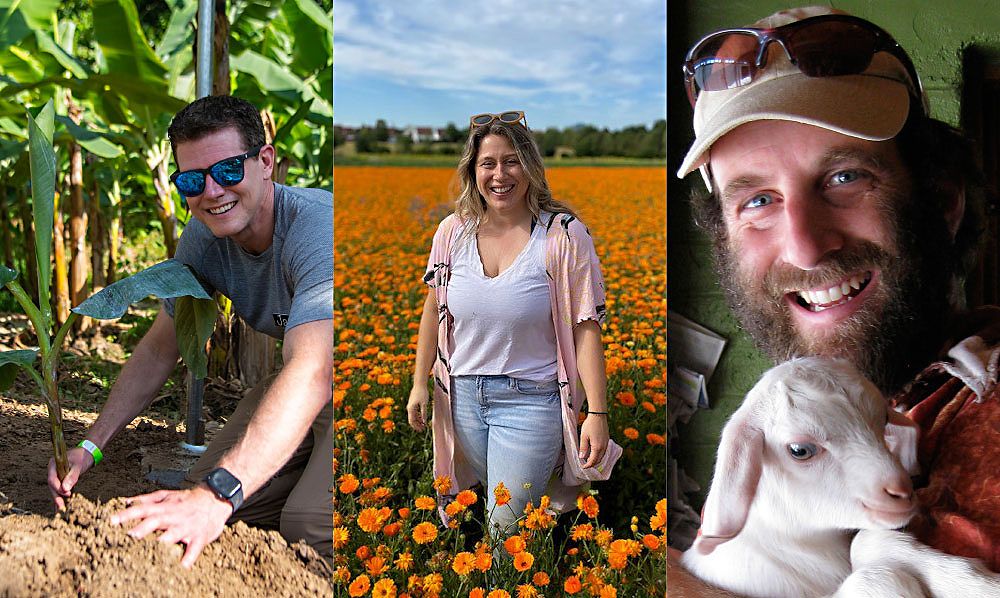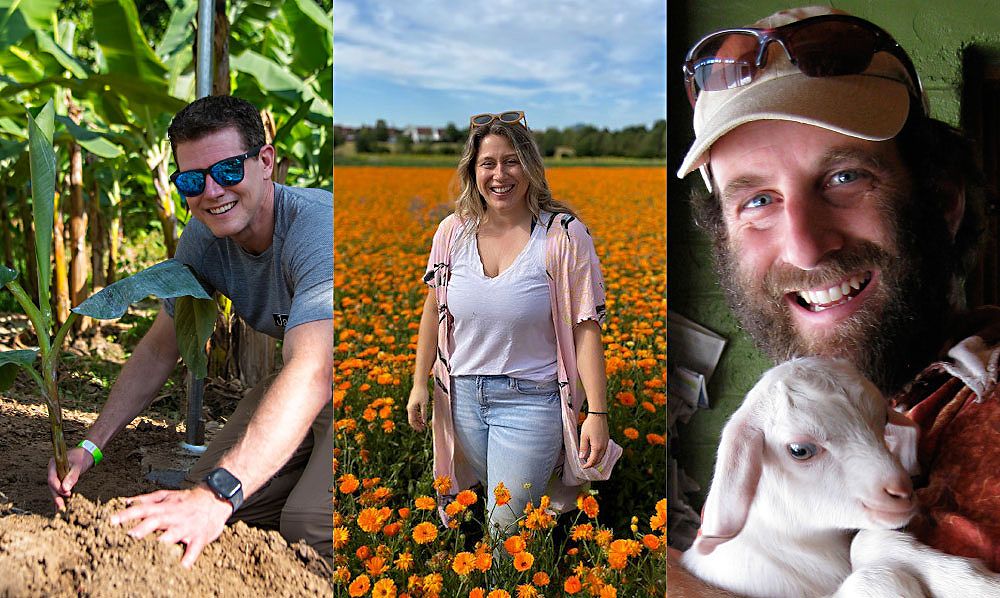Explore the potential of technology in supporting sustainable farming practices and addressing environmental challenges in our food system. Learn how regenerative agriculture and public awareness can contribute to a healthier planet.
The Role of Technology in Creating a Sustainable Food System
The discussions at SXSW are shedding light on the importance of climate-friendly food and regenerative agriculture. Experts are exploring the potential of technology in supporting sustainable farming practices and addressing the environmental challenges we face. With less than 3% of the US population involved in farming, it is crucial to find innovative solutions that can transform our food system for the better.
Co-CEO of 5th World, Rob Avis, emphasizes the significance of ecosystems, referring to them as the lungs, liver, and kidneys of our planet. He believes that our dietary choices have the power to either deplete or regenerate Earth's ecosystems. Encouraging sustainable and regenerative food production and consumption can help restore our planet and resolve many environmental issues. Avis states, 'Eating can be a hopeful act.'
Whole Foods Market CEO, Jason Buechel, recognizes the impact of changing weather patterns on food production and quality. He stresses the importance of investing in climate-smart agriculture, including organic and regenerative practices, to ensure the sustainability of our food system for future generations.
The Potential of Artificial Intelligence in Regenerative Farming
The potential of artificial intelligence (AI) in supporting regenerative farming practices is also being explored. Doug Fine, author and filmmaker of 'American Hemp Farmer,' highlights the need to transition from monoculture farming to regenerative modes. Fine suggests that technology, specifically AI, can help design agricultural systems that align with intact ecosystems. This shift can lead to more nutrient-dense proteins and habitat-building food systems. However, it also requires redefining what 'healthy food' means to consumers.
The sustainability of alternative proteins, often touted as more environmentally friendly than beef, is questioned. While they may have lower greenhouse gas emissions, the cultivation of the crops used in alternative proteins can be chemical- and energy-intensive. On the other hand, regenerative farms and ranches, including properly managed beef cattle systems, can have a positive impact on energy consumption and carbon emissions without relying on extensive chemical inputs.
Running Agricultural Systems in Harmony with Nature
Avis emphasizes the importance of running agricultural systems in harmony with nature. Regenerative farming practices mimic natural principles and work with ecosystems rather than against them. This approach benefits farmers, soil health, consumers, and the planet as a whole.
Public awareness and understanding of ecosystem health are crucial in driving sustainable change. Avis points out that many people are unaware of what a degraded versus regenerated ecosystem looks like. Raising public awareness is essential to encourage sustainable choices.
Empowering Individuals to Make a Positive Impact
Tri Vo, co-founder of Fierce Whiskers Distillery, believes that public sentiment is already driving corporate action. However, he emphasizes the need for everyone to be empowered to overcome the obstacles we face. Vo highlights the importance of treating nature well, as she provides clean water, clean air, and nutrient-dense food for free.
While public awareness of the environmental challenges is increasing, many people may not realize the simple solutions available to them. Fine suggests that even in our busy lives, anyone can contribute by planting a small soil-building garden. Supporting regenerative farmers, food co-ops, CSAs, and farmers' markets also positively impacts the planet. Restoring topsoil through regenerative cultivation techniques can sequester significant amounts of carbon annually.
Agriculture as a Catalyst for Positive Change
Caitlin Leibert, VP of sustainability at Whole Foods Market, emphasizes the potential of agriculture to uplift human rights while sequestering carbon and enhancing essential ecosystem services. She believes that through agriculture, we can actively move the needle in the right direction.
While exploring the potential of technology, it is important to remember that we already have the necessary data to regenerate our planet's ecosystems. Waiting for governments and large corporations to make changes is not necessary. Each individual can contribute to regenerative living and make a positive impact on the planet. Our lives depend on it.



